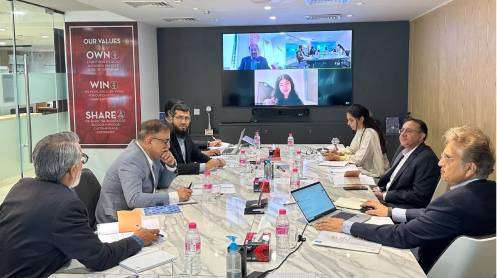KARACHI: The country’s leading industrial chambers and associations have called for the urgent implementation of the Competitive Trading Bilateral Contract Market (CTBCM) regime, which would enable bulk power consumers to purchase electricity directly from generators, bypassing the government.
The demand arose during a conference jointly organised on Tuesday by Renewables First and Pakistan Environment Trust, two prominent voices in Pakistan’s energy and environment sectors.
The conference featured discussions from prominent chambers and associations, including Zubair Motiwala, CEO of the Trade Development Authority of Pakistan; Tanveer Ahmed Barry, vice president of the Karachi Chamber of Commerce and Industry; Johar Ali Qandhari, president of the Korangi Association of Trade and Industry; and Asif Inaam, vice president of FPCCI and chairman of Aptma.
They voiced their concerns about excess generation capacity in the grid and costly take-or-pay contracts, questioning the government’s competence in managing the electric grid. They stressed that Pakistan’s power sector is heading towards disaster, with the CTBCM regime being the only viable solution.
Former Nepra chairman, Tauseef Farooqui, emphasised that it is not the government’s role to engage in business activities. However, under the current system, the government holds a monopoly on the sale and purchase of electricity.
By adopting the CTBCM regime, businesses and ordinary consumers would be able to procure electricity directly from suppliers at competitive rates. Mr Farooqui pointed out that the country’s power sector urgently needs reform, and the CTBCM regime could address the long-standing issues.
Aptma Chairman Asif Inam stressed that for export-oriented industries like textiles, competitive energy prices are essential for survival in the global market.
Faiza Jamil from the Pakistan Environment Trust noted that this regime offered businesses the opportunity to procure clean energy directly from developers through bilateral contracts, reducing their Scope 2 emissions and advancing towards net zero goals
Courtesy Dawn







